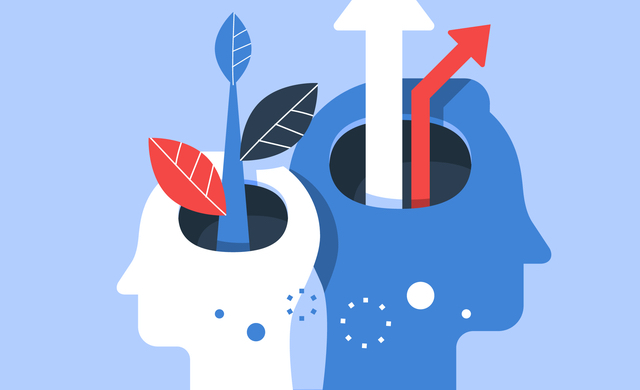Self-improvement is a lifelong journey that helps individuals reach their full potential. It involves continuous learning, self-awareness, and personal growth. Developing a mindset of self-improvement allows you to recognize strengths and weaknesses, enabling you to make meaningful changes in various aspects of life. If you haven’t already, make sure to check out our previous blog, What is Self-Awareness and How to Develop It? to lay a strong foundation for your self-improvement journey.
Understanding the Role of Self-Awareness in Self-Improvement
Before diving into self-improvement strategies, it’s essential to understand the role of self-awareness. Self-awareness helps you identify patterns in your behavior, emotions, and thought processes. When you recognize how you react to different situations, you can make conscious efforts to improve. A few key aspects of self-awareness include:
- Understanding your emotional triggers.
- Recognizing strengths and weaknesses.
- Identifying personal values and beliefs.
- Learning from past experiences.
Self-awareness is the foundation of self-improvement because it allows you to make intentional changes that align with your goals and aspirations.
Practical Strategies for Continuous Self-Improvement
To make self-improvement an ongoing process, implement the following strategies:
- Set Clear and Achievable Goals
Defining clear objectives gives your self-improvement journey direction. Whether it’s improving communication skills, adopting healthier habits, or mastering a new skill, setting SMART (Specific, Measurable, Achievable, Relevant, Time-bound) goals ensures steady progress.
- Develop a Growth Mindset
Embrace challenges as learning opportunities rather than obstacles. A growth mindset helps you remain open to feedback, adapt to new situations, and persist through difficulties.
- Commit to Lifelong Learning
Self-improvement involves continuous learning. Read books, take courses, listen to podcasts, or attend workshops to expand your knowledge and skills.
- Practice Self-Reflection
Regularly evaluating your progress keeps you accountable. Journaling, meditation, or discussing your thoughts with a mentor can help you gain clarity and stay on track.
- Surround Yourself with Positive Influences
Your environment plays a crucial role in self-improvement. Engage with mentors, coaches, and like-minded individuals who inspire and challenge you to grow.
- Take Care of Your Physical and Mental Well-Being
Self-improvement isn’t just about career growth or learning new skills; it also involves maintaining good health. Exercise regularly, eat nutritious food, and practice mindfulness to keep both your body and mind in top condition.
Overcoming Obstacles in Self-Improvement
The self-improvement journey comes with challenges, but applying Systematic Self-Improvement Techniques can help you navigate these obstacles effectively, ensuring consistent progress.
- Overcoming Fear of Failure
Fear of failure often prevents people from stepping out of their comfort zones. Embrace failure as a learning experience rather than a setback. Each mistake teaches valuable lessons that contribute to growth.
- Managing Self-Doubt
Self-doubt can hinder progress, but self-awareness helps combat it. Challenge negative thoughts by replacing them with positive affirmations and seeking feedback from trusted individuals.
- Avoiding Procrastination
Procrastination slows progress and creates unnecessary stress. Break large tasks into smaller, manageable steps, set deadlines, and use productivity techniques like the Pomodoro method to stay focused.
- 4. Handling Lack of Motivation
Motivation fluctuates, but discipline keeps you going. Establish routines, track progress, and remind yourself of your ‘why’ to stay committed to your self-improvement goals.
Long-Term Commitment to Self-Improvement
Self-improvement is not a one-time effort but a continuous commitment. Here’s how to maintain long-term growth:
- Embrace Consistency Over Intensity
Small, consistent actions create lasting change. Rather than overwhelming yourself with drastic changes, focus on steady progress over time.
- Reassess and Adjust Goals Regularly
Your goals and priorities may shift over time. Periodically review and refine them to align with your evolving aspirations.
- Seek Guidance Through Self-Improvement Coaching
A professional self-improvement coach provides personalized strategies, accountability, and guidance, making your journey more structured and effective.
- Celebrate Milestones
Acknowledging progress, no matter how small, boosts motivation. Reward yourself when you achieve key milestones to stay inspired.
Conclusion
Continuous self-improvement is an ongoing journey that begins with self-awareness. By setting clear goals, overcoming obstacles, and staying committed, you can achieve personal and professional growth. If you’re ready to take the next step, consider a consultation for self-improvement coaching to receive expert guidance and support in your journey.
Frequently Asked Questions
- What is the first step in self-improvement?
The first step is self-awareness—understanding your strengths, weaknesses, emotions, and behaviors. This foundation helps you identify areas for growth and take actionable steps toward improvement.
- How can I stay motivated in my self-improvement journey?
Maintain motivation by setting clear goals, tracking progress, celebrating achievements, and surrounding yourself with positive influences.
- How often should I evaluate my self-improvement progress?
Regular self-reflection is crucial. Evaluate your progress weekly or monthly to stay accountable and make necessary adjustments.
- Can self-improvement coaching help me achieve my goals faster?
Yes, self-improvement coaching provides personalized guidance, accountability, and expert strategies that can accelerate your growth and ensure you stay on track.
- What is the difference between self-improvement and self-awareness?
Self-awareness is the ability to recognize and understand your thoughts, emotions, and behaviors. Self-improvement is the process of using that awareness to make positive changes in your life.



One response to “Systematic Self-Improvement Techniques for Lasting Growth”
[…] coaching enhances self-development and self-awareness, helping you understand your strengths and areas for improvement, leading to […]